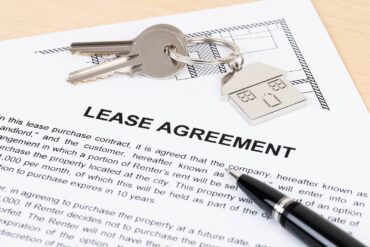 Editor’s note: This is part 2 of a two-part series. Read part 1 to learn what questions you should ask before signing a lease.
Editor’s note: This is part 2 of a two-part series. Read part 1 to learn what questions you should ask before signing a lease.
You’ve read your lease (right?) and most of it looks acceptable — but there are a few things you’d like to add or change before signing. Maybe a parking space isn’t included in your rent when you thought it would be or maybe you’d like the landlord to cover a certain utility. The good news is, nothing is set in stone until you sign on the dotted line. You are allowed to ask your landlord to add, remove or edit clauses that don’t suit you.
That said, a little time spent preparing will serve you well in this area. Here are 10 tips to help you negotiate rent like a pro — while staying on good terms with your prospective landlord.
1. Understand what you can ask for.
When negotiating a lease, the first thing that may come to mind is asking for a price break. While that’s certainly on the table, there are plenty of other clauses you might want to amend. Large landlords and corporations in particular are often inflexible on base rent, but can cut prices in other areas.
A few things you might be able to negotiate:
- Lower rent
- Free month of rent at the beginning of your lease
- Longer or shorter lease term
- Free pet rent, parking, gym access or other amenities
- Landlord to pay utilities
- Predictable renewal terms, such as a maximum rent increase or a guarantee that you can renew your lease
2. Compare your rental to others in the area.
One of the best tools in your negotiation box is research. Take a look around at comparable rentals in the area. Maybe a parking space is free for lots of them, the rent’s a little lower or there’s no pet rent. Bringing these facts to the table will make your negotiating position stronger. Your landlord could be more willing to give you something if they know other landlords in the area are doing it.
3. Know exactly what you want.
Know in advance what you want. If you’d like your security deposit to be reduced, by how much? If you want utilities to be included in the rent, which ones? By having a list of concrete requests in place, you will reduce misunderstandings and allow your landlord to respond with accuracy.
4. Think about what you can offer.
Landlords are more likely to bend their lease terms if you bring something to the table in return. To sweeten the pot, you could offer to:
- Help out with maintenance or yard work
- Commit to a longer lease — for example, two years instead of one (a landlord who doesn’t need to worry about filling a vacancy might have more financial wiggle room)
- Move in earlier
- Pay a higher monthly rent down the road for free rent upfront
- Pay several months’ rent in advance
- Not utilize a valuable parking space
- Extend the termination notice from 30 days to 60 or 90 days
 5. Understand your leverage.
5. Understand your leverage.
If there were 20 people clamoring to submit applications at the tour, then the landlord can easily move on to another renter. If the place has been available for a little while and the landlord is still looking for a renter, then you have a better bargaining position.
Still, keep your expectations realistic. If the rent is $1,500 and you want it to be $500, you’ll end up disappointed. But if you ask for a price drop to $1,400? You might have a shot.
6. Get the timing right if you’re renewing.
If you are renewing a preexisting lease instead of signing a new one, don’t wait until the last minute. It’s best to start negotiating two or three months before your lease expires. This shows your landlord courtesy and gives you time to (potentially) find a new rental if you don’t come to an agreement. Plus, during this window, landlords are most likely to try their best to keep you as a tenant in order to avoid a vacancy.
7. Wait until you’re approved before you negotiate.
If you negotiate before you’ve even been approved, you might take yourself out of the running right away. After all, why should a landlord negotiate with you if other prospective renters might accept the lease terms as-is?
If you negotiate after you’ve been approved, you already know the landlord is excited about you as a renter. They’ll likely be more willing to rearrange your contract a bit to suit you.
8. Be courteous.
Landlords are often portrayed as greedy villains in popular culture, but in reality, they’re usually individuals who are just trying to pay their own bills. Kindness and courtesy during the negotiation process will not only keep things civil, they may actually be the thing that convinces the landlord to accept your request. Landlords have a big incentive to work with renters who are considerate, polite and professional.
9. Be prepared for some back-and-forth.
If you don’t receive a straightforward “yes,” take time to consider the landlord’s objections and suggestions. There’s a good chance the landlord will come back with a few different options you hadn’t considered before.
You’ll have to evaluate them and decide what makes sense for you. You might have to ask yourself:
- How strongly do I feel about the apartment?
- Am I still willing to rent on the terms of the original lease?
- How flexible can I be with my original ask? Is it possible I could concede something more?
10. Read the revised lease.
Once you and your landlord have come to an agreement, make sure that the revised terms are written into the lease and that you both sign it. Otherwise, your negotiations won’t be legally binding. This is not the time to rely on a verbal agreement or handshake.



























